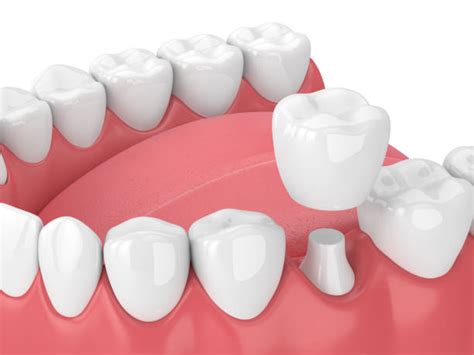Maximize Your Crown's Lifespan: Expert Tips
Dental crowns are a remarkable advancement in restorative dentistry, offering a durable and aesthetically pleasing solution for damaged or decayed teeth. However, even with the best materials and craftsmanship, a crown's lifespan isn't indefinite. Understanding how to maximize its longevity is key to preserving your smile and avoiding costly replacements. This comprehensive guide provides expert tips to ensure your crown stays strong and beautiful for years to come.
What Factors Affect the Lifespan of a Dental Crown?
Several factors influence how long your crown will last. These include the quality of the crown's material (porcelain, metal, or a combination), the skill of the dentist during placement, and, most importantly, your diligent oral hygiene practices. Underlying conditions like bruxism (teeth grinding) can also significantly impact its longevity. Proper aftercare and regular dental checkups are paramount for maximizing the lifespan of your crown.
How to Prolong the Life of Your Dental Crown: Practical Tips
1. Maintain Meticulous Oral Hygiene:
This is arguably the most crucial factor. Brush your teeth twice daily with a fluoride toothpaste, using gentle, circular motions. Flossing is equally important, removing food particles and plaque from between your teeth and under the gumline, areas a toothbrush can't reach. Consider using an interdental brush to clean around your crown effectively. Neglecting oral hygiene can lead to gum disease, which can ultimately compromise the crown's stability.
2. Avoid Harmful Habits:
- Teeth Grinding (Bruxism): If you grind your teeth, a custom nightguard is essential. Bruxism exerts immense pressure on your crown, potentially leading to chipping, fracturing, or loosening.
- Chewing on Hard Objects: Avoid biting down on hard objects like ice, pens, or fingernails. This puts excessive stress on your crown and can cause it to break or crack.
- Nail Biting: This habit not only damages your teeth and gums but can also negatively impact your crown.
- Opening Packages with Your Teeth: Resist the temptation; use appropriate tools instead.
3. Regular Dental Checkups:
Regular checkups (at least twice a year) are crucial. Your dentist can monitor the crown's condition, identify any potential problems early on (like decay or gum disease), and perform necessary adjustments. Early detection prevents small issues from escalating into major problems requiring extensive and costly repairs.
4. Diet Considerations:
While there aren't strict dietary restrictions, be mindful of excessively sticky or hard foods that could damage your crown. Maintaining a balanced diet contributes to overall oral health and strengthens your gums, providing better support for your crown.
5. Understand the Signs of a Failing Crown:
Knowing the warning signs is crucial for timely intervention. These include:
- Pain or Sensitivity: Sudden or persistent pain or sensitivity to temperature changes could indicate a problem.
- Loose Crown: If your crown feels loose or wobbly, see your dentist immediately.
- Chipped or Cracked Crown: A visible chip or crack requires prompt attention to prevent further damage.
- Discoloration: Noticeable discoloration around the crown or under the gumline might suggest decay or gum inflammation.
What Happens If My Crown Fails?
If your crown fails, it's essential to seek immediate dental attention. Ignoring the problem can lead to more extensive damage, affecting the underlying tooth structure and potentially requiring more complex and expensive procedures. Your dentist will assess the situation and determine the best course of action, which could involve repair, replacement, or even root canal treatment.
How Long Does a Dental Crown Typically Last?
The lifespan of a dental crown varies depending on several factors, including the material used, the patient's oral hygiene habits, and the presence of any underlying conditions like bruxism. With proper care, a dental crown can last for 10-15 years, or even longer in some cases.
Can I Prevent the Need for a Crown?
While you cannot always prevent the need for a crown (e.g., severe tooth decay or trauma), maintaining excellent oral hygiene, regular dental visits, and avoiding harmful habits significantly reduces the risk of needing one.
By diligently following these tips, you can significantly extend the life of your dental crown and maintain a healthy, beautiful smile for years to come. Remember, proactive care is the key to preserving your investment and your oral health.

